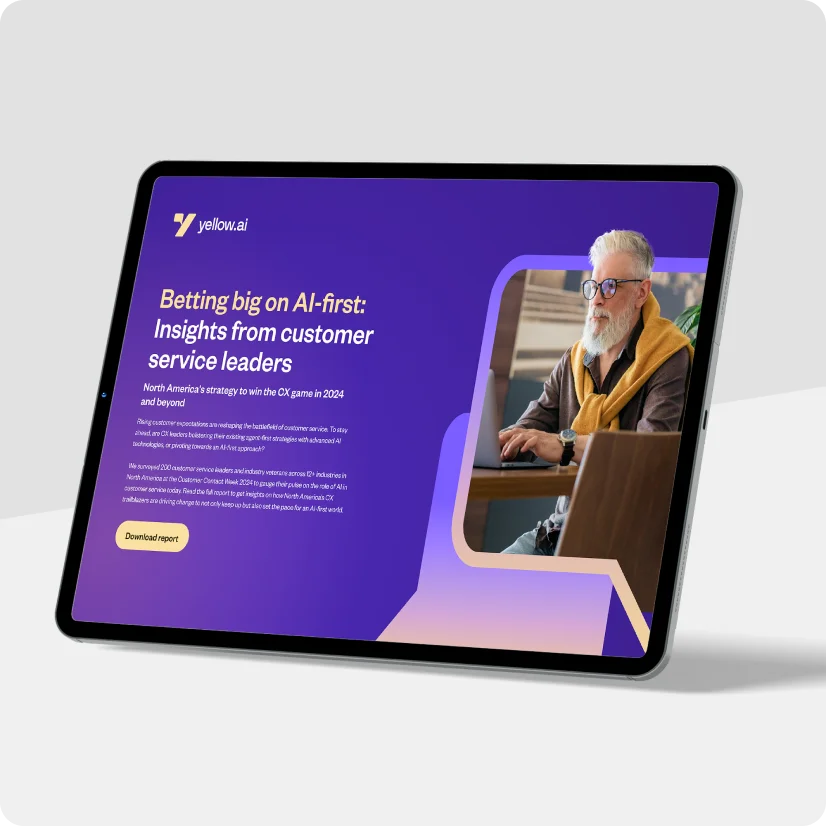When it comes to personalisation, it can be difficult to know where to begin, especially when it’s about delivering tailored experiences to a huge customer base.
This checklist is all you need to get started and develop a launch plan, from mapping customer journeys to segmenting audience and setting KPIs. The checklist will also help you identify and put the necessary tools and technology in place to achieve personalization at scale.
Related must read:
- What is customer experience management and its best practices?
- 10 Key customer experience (CX) trends [2023]
- Conversational AI for Customer Experience?
- Customer Experience vs. Customer Service
- Customer experience in banking: Why it matters more than ever
- How can utilities companies effectively automate the customer experience?
What does personalization at scale mean?
Personalization is a customer engagement practice that emphasizes delivering tailored, meaningful and relevant customer communication. Personalization allows a company to use all available customer data to provide more relevant experiences to both existing customers and prospects.
Consider your typical customer’s experience, they don’t want to be bothered by irrelevant coupons, emails or texts, but they do want to be notified of offers that are relevant to their specific needs.

Now coming to the ‘at scale’ part. Sending each customer any form of digital communication that addresses them by name and offers a discount based on a previous purchase isn’t enough in today’s market. You must create and deliver personalized messages to thousands of customers over the course of multiple interactions.
This is where technology can help. It enables businesses to interact on a personal level with all of their customers. That is why, rather than just personalization, it is critical to always think and speak in terms of personalization at scale.
5 Steps to achieve personalization at scale
1. Start by mapping the customer journey
The first step in personalizing the customer experience at scale is to map the customer lifecycle or determine where customers are in their purchasing journeys. Having a thorough understanding of your visitors’ journey to becoming customers or loyal advocates of your brand is essential if you aim to deliver tailored experiences.
2. Collect and unify customer data
Customer journeys today span across multiple channels and devices. It is important to collect and unify data from all these different platforms to create a holistic, scalable personalization strategy.
Marketing campaigns should be driven by customer needs and fueled by as much information as we can gather about their characteristics, problems and challenges.
However, this information is not provided by users in ready-to-use statements. They leave hints whenever they interact with any of your brand’s touchpoints. They give you information when they arrive on your landing page, navigate through different inner pages and interact with your popups. More information can be found in their responses to your emails, in what they buy and don’t buy as well as in the offers they accept and reject.
3. Create thoughtful customer segments
With the comprehensive data aggregated from a variety of sources, businesses can create meaningful customer segments that have the potential to drive high value for them.
One of the pitfalls of customer segmentation is that many companies tend to go overboard. This means they create too many segments without focusing on getting actionable insights. You should be able to identify customers in each segment and measure their characteristics, such as demographics or usage behavior. Targeting small segments is usually inefficient; therefore, a segment must be large enough to be potentially profitable.

4. Orchestrate omnichannel personalization
This is the most important and likely most difficult step for many marketers and business owners when practicing personalization at scale. Proceed to this step once you have mapped your user journey, defined the target persona and identified your high-value segments.
You are now ready to create personalization campaigns that target each segment based on their status, needs and preferences. The most difficult challenge is locating a software that can plan, execute and maintain automations at this scale across all channels from a single dashboard.
5. Measure results to refine and scale
As we discussed earlier, you will need to constantly measure the performance of marketing automation by reviewing the key metrics of your campaign based on the channel used and decide to continue, stop, refine or amplify when necessary.
With an analytics dashboard you get real-time insights about your campaign so that you can iterate and improve in real-time.
What’s next?
After you’ve laid the groundwork with these steps, you’ll need to make some critical operational decisions, such as deciding on the best personalization platform and integrating your martech stack to create a unified view of your customers.
In a recent report by McKinsey, it was found that 50% of businesses that are successfully personalizing user experiences at scale are using the right set of tools and technology, compared with only 16% of their poorer-performing peers.
A unified platform that enables data gathering, segmentation, and analysis in one location must be at the center of scalable personalisation. Data management, on the other hand, has always been the domain of IT. The result has been a lack of access to vital data that could be used in modern marketing.
The bottleneck can be broken with the help of a no-code, low-code platform like Yellow.ai, which is as simple to use as it is to build. With an all-in-one automation platform, you can collect user data from multiple platforms, get a unified view of real-time insights as well as run automated personalization campaigns at scale using Dynamic AI agents.
Get in touch with our experts to learn more about how Yellow.ai enterprise-grade Conversational AI platform is everything you need to start delivering personalized user experiences at scale.

















